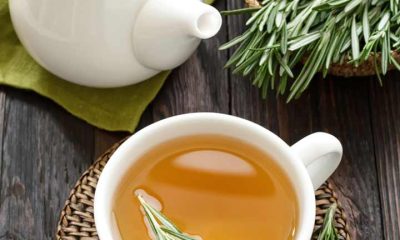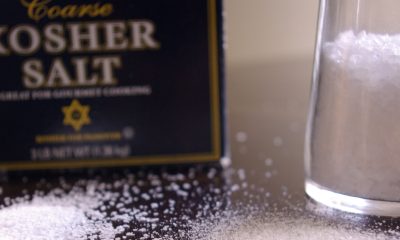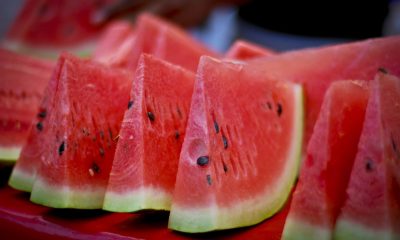Food
Benefits of oat milk for skin
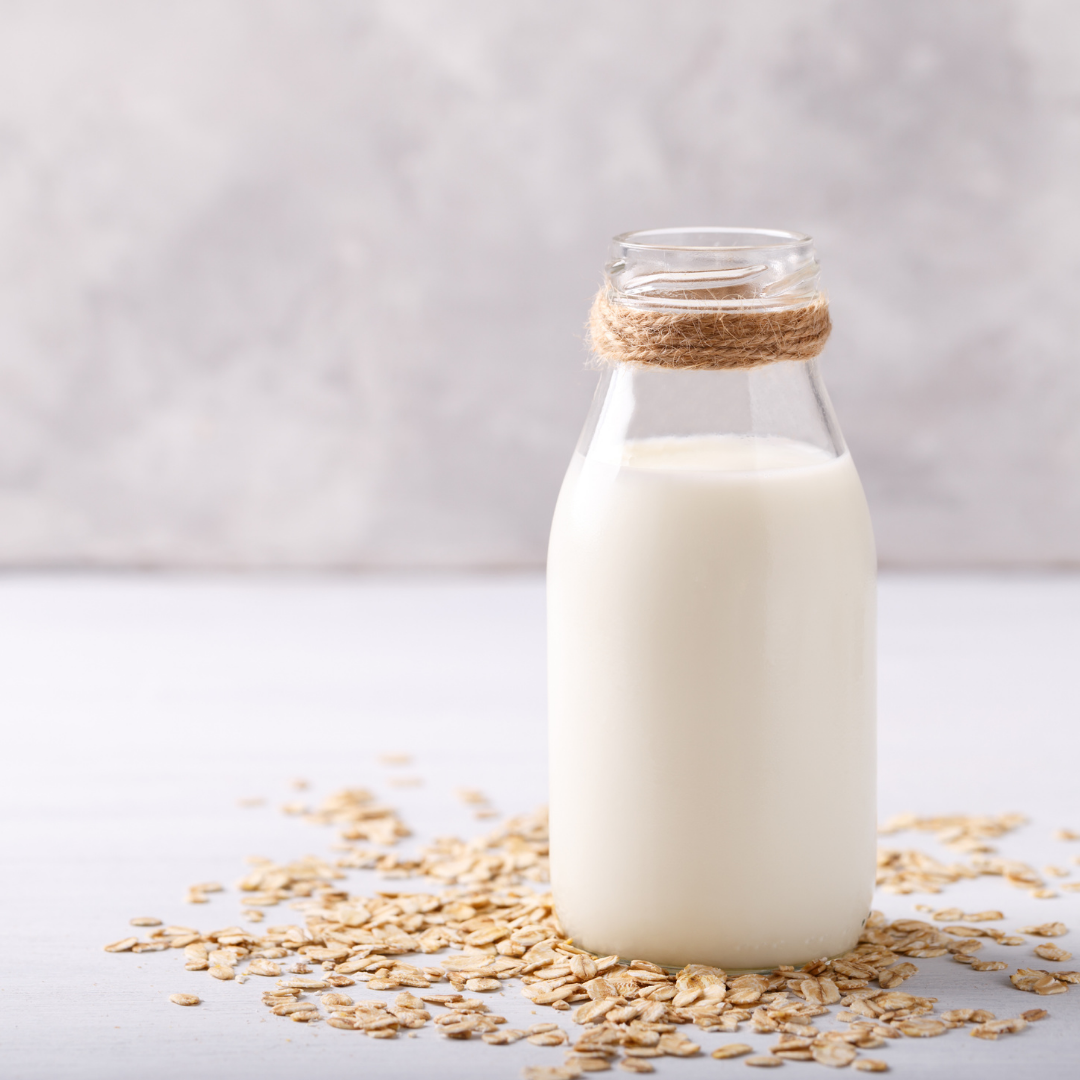
- Discover the incredible benefits of oat milk for the skin.
- Plant-based milk is a trend, although it is not just a fad. They have come to stay. And oat milk is one of the most consumed in the world.
- In addition to having multiple benefits for the body, it is also a great natural ally for skincare. It has a great antioxidant and moisturizing effect, so it’s fantastic for a younger-looking face. We tell you what are the benefits of oat milk for the skin!
- If oat milk is well known for something, it is for its antioxidant properties. It prevents the aging of both cells and skin thanks to its high content of vitamin E and essential amino acids. What does this mean? That the main signs of aging, such as wrinkles and expression lines, take longer to appear.
- Oat milk is a very rich source of B vitamins, especially vitamin B3 . This makes it helps improve skin health. Several studies have shown that its topical application reduces wrinkles and retains moisture.
- Yes, it also has a great moisturizing effect. Provides the skin with the water it needs to be healthy. And not only that: it also creates a protective layer to prevent water from escaping.
- To all this, we must add one of the great benefits of oat milk for oily skin. Regulates sebum production, removes impurities such as blackheads and whiteheads, and reduces pore size.
- And finally, this vegetable milk performs a very gentle exfoliation on the skin, removing accumulated dead cells. This is essential for the skin to breathe and oxygenate.
-
OAT MILK AND HONEY MASK
If you want to take care of your skin in a 100% natural way, cheer up with this mask based on oat milk and honey. It is very easy to make and apply, and it is fantastic for making the skin much softer and more hydrated.
The ingredients you need are 1 cup of oat milk and 2 tablespoons of pure honey. When you have them, mix them until you get a homogeneous paste. Let it sit for a couple of minutes and apply to a clean face.
Then, apply it to your face with your fingertips or a clean brush and leave it on for 15 minutes. Once the time has elapsed, rinse with plenty of warm water.
Food
6 Benefits of sweet orange essential oil
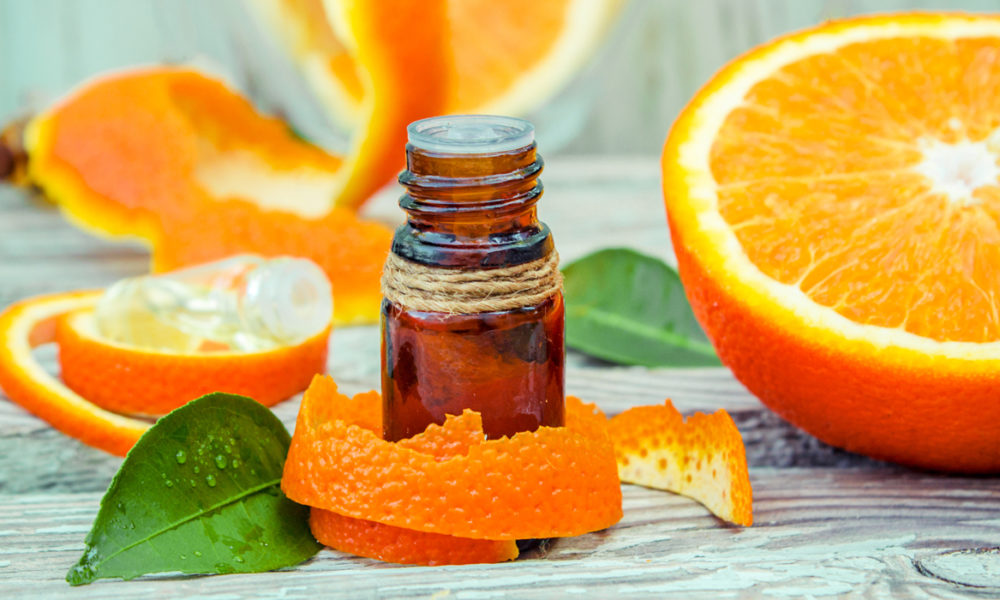
Table of Contents
Food
Are tomatoes better to eat raw or cooked?
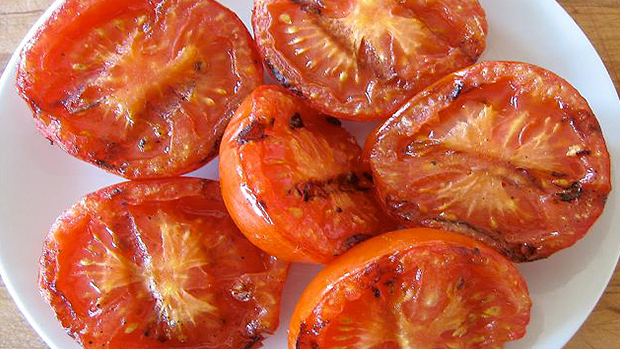
Discover whether tomatoes are better to eat raw or cooked.
The lycopene contained in tomatoes (and in red vegetables) is a powerful antioxidant with beneficial properties in the prevention of cardiovascular diseases and certain cancers, including that of the prostate. This antioxidant power is higher when cooking.
Regarding the action of lycopene, it is recommended to eat peeled, crushed or cooked tomatoes rather than raw. Ditto for the red peppers.
In addition, lycopene is fat soluble, that is to say that it is better assimilated by the body if we add fat such as cheese or – especially – olive oil. One more reason to fall for traditional dishes of Italian cuisine based on fresh but cooked tomatoes, cheese, meat and of course olive oil.
However, unlike lycopene, some of the vitamins and minerals in tomato are lost during cooking. This is particularly the case with vitamin C, which is particularly sensitive to heat and therefore to cooking. For an optimal effect, the ideal is therefore to alternate raw and cooked tomatoes.
Food
9 Benefits of barley and side effects

Table of Contents
- Health benefits of Barley
- Barley and gluten
- Nutrition facts of barley
- How to cook barley?
- Discover the 9 shocking health benefits of barley and side effects.
Although barley may not be as popular as other whole grains such as oats, wheat, or even grain quinoa, the health benefits of barley are truly impressive for your health, thanks to its high content of fiber, vitamins, minerals, and antioxidants, it can protect the heart and diabetes, but these are just some of the nutritional benefits of barley that make it one of the best whole grain options.
Barley is one of the oldest grains consumed in the world; It was a staple grain for peasants during the Middle Ages for centuries and today it is still included in the diet of many European, African, and Middle Eastern nations that have been eating barley for thousands of years.
Similarly, barley provides a variety of important vitamins and minerals: fiber, selenium, B vitamins, copper, chromium, phosphorus, magnesium, niacin, and more.
When compared to many other grains, even other ancient whole grains, barley is lower in fat and calories, but higher in dietary fiber and certain minerals.
For example, a one-cup serving of cooked barley contains fewer calories, but more fiber, than an equal serving of quinoa, brown rice, amaranth, sorghum, millet, or wild rice.
Health benefits of Barley
1.- High source of fiber
One of the most notable health benefits of barley is its high fiber content, each one-cup serving of barley provides approximately 6 grams of fiber.
Most of the fiber found in barley is the insoluble type that supports healthy digestion, glucose metabolism, and heart health.
Eating high-fiber foods also makes you feel fuller, as fiber expands within the digestive tract and takes up a large volume of space.
This means you feel more satisfied after a meal, you can control your blood sugar levels better, and you have fewer cravings.
2.- Benefits of barley for digestion
Fiber also helps fight constipation and diarrhea by forming a bulge within the digestive tract, therefore regulating bowel movements.
One study looked at the effects of adding more barley to the diet of adult women and found that after 4 weeks, barley intake had beneficial effects on lipid metabolism and bowel function.
Similarly, the fiber in barley is also important for maintaining a healthy balance of bacteria within the digestive tract.
Another important and well-researched benefit of barley nutrition? Barley’s high fiber supply may even be beneficial in preventing certain types of cancer within the digestive system, including colon cancer.
3.- Benefits of barley for weight loss
Fiber provides bulk to a healthy diet without additional calories since the body cannot digest fiber. This makes the fiber found in barley beneficial for weight loss.
One study found that when adults added high amounts of beta fiber from barley gluten to their diets for 6 weeks, their weight dropped significantly, as did their hunger levels.
And many other studies have found that compared to more refined grain products, such as white bread, for example, consuming whole grains such as barley benefits significantly reduces hunger levels and positively impacts metabolic responses to foods. carbohydrates by absorbing starches at a slower rate.
4.- Benefits of barley for diabetes
Barley nutrition can benefit blood sugar management, making it a smart grain choice for people with diabetes or any form of the metabolic syndrome because it helps slow the rate at which sugar is released in the bloodstream.
Barley contains 8 essential amino acids, the building blocks of protein, as well as high amounts of soluble fiber that control insulin release in response to barley sugar in the form of carbohydrates.
Within the cell walls of barley is a type of soluble fiber called beta-glucan. Beta-glucan is a viscous fiber, which means that our body cannot digest it and it moves through our digestive tract without being absorbed.
In doing so, it binds with water and other molecules within the digestive tract, decreasing the absorption of glucose (sugar) from food intake.
An animal study found that after rats were given high levels of barley over 7 weeks, the addition of the benefits of barley helped reduce their weight, decrease lipid (fat) accumulation, and improve insulin sensitivity compared to rats that did not.
Due to its special fiber compounds, barley’s nutrition has even been found to help control blood sugar levels better than other whole grains, like oats, for example.
5.- Helps reduce high cholesterol
A high-fiber diet has been correlated with a lower incidence of heart disease, in part due to its ability to help lower high cholesterol levels.
Barley’s great source of insoluble fiber is primarily responsible for providing you with heart health benefits because it inhibits the amount of bad cholesterol that can be absorbed by the intestines.
In one study, 28 men with high cholesterol levels were put on a diet that contained high amounts of barley, with about 20% of the total calories coming from whole grain barley.
After 5 weeks, the levels of total cholesterol, “good” HDL cholesterol, and triglycerides showed significant improvements.
The researchers concluded that by increasing soluble fiber through consuming barley, as part of an overall healthy diet, people can reduce several important cardiovascular risk factors.
The fiber in barley helps form a type of acid known as propionic acid that helps inhibit the enzymes involved in the production of cholesterol in the liver.
The fiber found in barley also provides beta-glucan, a substance that is needed to bind the bile in the digestive tract to cholesterol and therefore to help extract it through the colon and out of the body in the stool.
6.- Prevents heart disease
One of the biggest benefits of barley nutrition is that eating whole grains is correlated with better heart health.
Barley contains certain nutrients including vitamin B3 niacin, vitamin B1 thiamine, selenium, copper, and magnesium, which help lower cholesterol, high blood pressure, and other risk factors associated with heart disease.
The nutrients in barley are especially helpful in slowing the dangerous progression of atherosclerosis, a condition in which plaque builds up within the arteries and can lead to heart disease, a heart attack, or a stroke.
7.- Provides antioxidants
Barley benefits the body in many ways because it contains antioxidant phytonutrients known as lignans.
Lignans are correlated with a lower incidence of cancer and heart disease because they help reduce inflammation and fight the effect that aging can have on the body.
The main type of lignan found in barley benefits is called 7-hydroxymatairesinol.
Studies have shown that this lignan may offer protection against the development of cancer and heart disease by helping the body metabolize bacteria and maintain a healthy ratio of “good to bad” bacteria within the gut, reducing overall inflammation.
The antioxidants found in barley help increase serum levels of enterolactone, which is a compound that is associated with controlling hormone levels and therefore fighting hormone-related cancers such as cancer of the prostate and breast.
8.- High in vitamins and minerals
One of the nutritional highlights of barley benefits is that this whole grain is a good source of important nutrients including selenium, magnesium, copper, niacin, thiamine, and many other vital nutrients as well.
Barley nutrition helps many functions due to its high mineral content. Copper, for example, is important for maintaining cognitive function in old age, supporting metabolism, the nervous system, and producing red blood cells.
And the selenium found in barley benefits your appearance by improving skin and hair health and supporting a healthy metabolism. Selenium also works with vitamin E to combat oxidative stress.
Magnesium is necessary for many important enzyme relationships in the body, including glucose production and use. it also helps control muscle function, blood vessel dilation, and many more functions.
9.- Protects against cancer
A diet that includes whole grains has been shown to protect against various forms of cancer, including breast, colon, and prostate cancers.
Whole grains contain compounds that can fight free radical damage and inflammation, including lignans, polyunsaturated fatty acids, oligosaccharides, plant sterols, and saponins.
These beneficial compounds have mechanical effects that include binding to harmful carcinogens and their removal from the body.
They also help improve the gut environment and therefore increase immunity by helping with the absorption of antioxidants and nutrients.
Also the antioxidants of the benefits of barley, the enterolactone, protect against all types of cancer-based on hormones.
Barley and gluten
Although barley has many health benefits, it also has some negative attributes that you should know about. Like whole wheat and rye grains and seeds, barley naturally contains the protein gluten.
This means that barley may not be a suitable grain for those with celiac disease or gluten sensitivities. Again, these gluten proteins can be greatly reduced by germinating this grain, fermenting, or sourdough bread.
Nutrition facts of barley
About a cup of cooked castrated barley, which is roughly 1/3 cup uncooked, provides:
• 217 calories
• About 1 gram of fat
• 10 grams of fiber
• 7 grams of protein
• 45 grams of carbohydrates
• 1 mg manganese (60%)
• 23 mg selenium (42%)
• .3 mg copper (34%)
• .4 mg of vitamin B1 (33%)
• 162 mg phosphorus (23%)
• 80 mg magnesium (20%)
• 8 mg of vitamin B3 (18%)
To get the most benefits from barley nutrition, it is recommended that you first soak and sprout uncooked hull barley grains, or you can choose to purchase sprouted barley flour for cooking.
Sprouting whole grains helps release their nutrients, so the body can absorb and use the various vitamins and minerals found within the grain.
This is because all whole grains contain certain antinutrients, like phytic acid, for example, that bind to nutrients and make them very difficult to absorb.
Soaked and sprouted grains, including uncooked barley, can help to significantly lower the level of antinutrients, making the grains more beneficial and also easier to digest. It can also reduce the amount of gluten present in barley to some extent.
Numerous studies have found that when grains are soaked and sprouted, improvements in digestibility and nutrient absorption are observed, as well as increased levels of vitamins, minerals, proteins, and antioxidants.
To sprout your own barley, you can soak whole raw barley grains for 8-12 hours and then sprout over the course of about 3 days.
How to cook barley?
Barley is said to have a rich nutty flavor and a dense, chewy texture. If you like the taste and texture of other ancient whole grains like farro, buckwheat, or wheat berries, then chances are you enjoy barley too.
Barley is a great addition to comfort foods like soups and stews, as it absorbs a lot of flavor and adds a filling and chewy element to dishes.
When buying barley, you should look for 100% whole grain or hulled barley, but ideally not pearl barley.
Pearl barley is more processed and refined, so it lacks some of the nutritional benefits of barley described above; shelled barley (or covered barley) is eaten after removing the edible, fibrous, and inedible hull from the kernels.
Once extracted, it is called “hulled barley,” but it still retains its bran and germ, which is where many of the nutrients and benefits of barley can be found.
Before cooking raw barley, rinse the grains thoroughly under running water. Make sure to remove any floating hulls or particles, as they can carry bacteria
Cook the barley using a ratio of one part barley to three parts boiling water or broth. This means that you will add 1/3 cup of barley to 1 cup of liquid when the grains boil.
Bring the cleaned grains and liquid to a boil then lower the heat, allowing the barley to simmer over low heat until tender and cooked through.
Pearl barley generally takes about 1 hour to simmer to cook, while the preferred type of hulled barley lasts about 1½ hours.
-

 Benefits4 months ago
Benefits4 months agoThe Benefits of Joining Gym Lumolog – Improve Your Fitness & Health
-

 Food1 year ago
Food1 year ago10 + Benefits of carrot juice and side effects
-

 Health1 year ago
Health1 year ago50 Super Healthy (And Very Often Cheap) Foods
-

 Health1 year ago
Health1 year ago5 Shocking health benefits of kinkeliba and side effects
-

 Health1 year ago
Health1 year ago15 health benefits of soursop leaves tea and side effects
-

 Food1 year ago
Food1 year ago8 shocking benefits of leek juice and side effects
-

 Health1 year ago
Health1 year ago15 Benefits of lipton tea and side effects
-

 Health1 year ago
Health1 year agoBenefits of guava leaves Sensually



